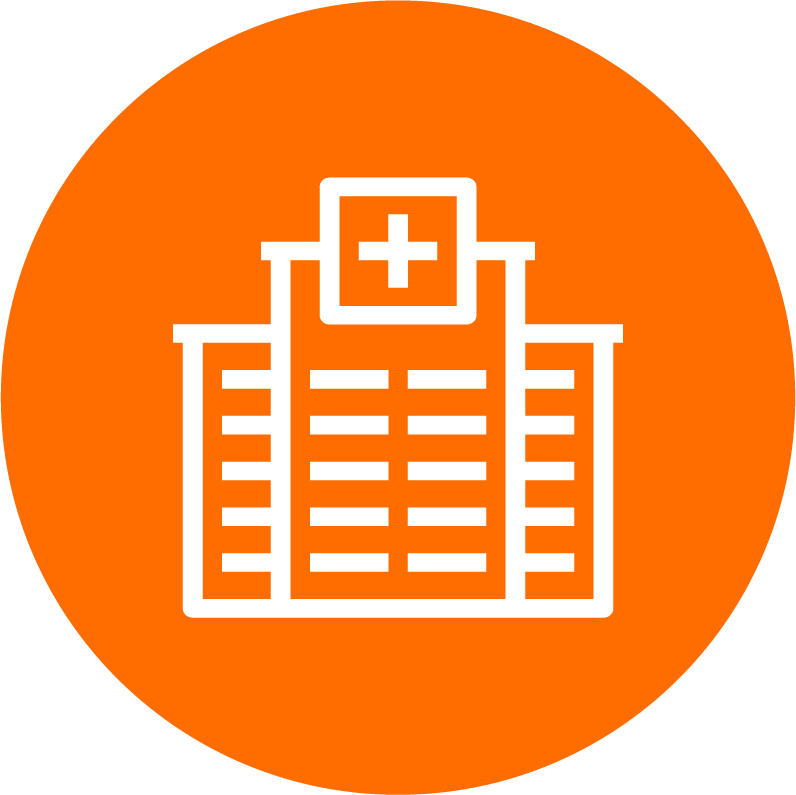Case Study
TriNetX Helps Cuyahoga County’s MetroHealth System in Ohio Strive for Clinical Research Leadership Through Data Sharing

Customer
The MetroHealth System in Cuyahoga County, OH, provides care to more than 300,000 patients through nearly 1.5 million visits a year at its four hospitals, and more than 20 health centers throughout the county, which includes Cleveland and surrounding suburbs

Challenge
MetroHealth wanted to reach more pharmaceutical companies and contract research organizations (CROs) for interventional clinical trial opportunities

Solution
MetroHealth partnered with TriNetX to increase their incoming trial opportunities

Results
Trial opportunities increased 20-30 fold, greatly enhancing their trial pipeline and visibility in the research community. Additionally, MetroHealth was able to leverage its participation in the TriNetX Network to conduct their own research, including publishing a COVID-19 study in 2020, highlighting the importance of data sharing among public health researchers
MetroHealth System
The MetroHealth System, Cuyahoga County’s public health system, provides care to more than 300,000 patients through nearly 1.5 million visits a year at its four hospitals, and more than 20 health centers throughout the county, which includes Cleveland and surrounding suburbs. As an academic medical center, MetroHealth is committed to teaching and research. It lives by its mission of “leading the way to a healthier you and a healthier community through service, teaching, discovery, and teamwork.”
Recognized as a technology leader in the healthcare industry, MetroHealth was the first public/safety-net organization to install Epic (1999) and the first public/ safety-net to achieve Health Information Management and System Society (HIMSS) Electronic Medical Record Adoption Model (EMRAM) Stage 7 in its hospitals and ambulatory network (2014, revalidation in 2017 and 2020). It is also the first public/safety-net with Epic to be recognized with an enterprise HIMSS Davies Award of Excellence. It is one of only 20 healthcare systems in the world to have twice been revalidated as a HIMSS EMRAM Stage 7 healthcare system. It is in the top 5 percent in the KLAS Arch collaborative in terms of EHR usability.
Being a major technology leader, MetroHealth set a goal of becoming a leader in clinical research as well.
“As an academic medical center, we are striving to become recognized for our interventional and big data studies,” said David Kaelber, MD, PhD, MPH, Chief Medical Informatics Officer and Vice President of Health Informatics at MetroHealth, and professor of internal medicine, pediatrics, and population and quantitative health sciences at Case Western Reserve University. “Our patient population is pretty special because it is very socio-economically, racially and ethnically diverse. We wanted to get our patients more involved in research for their benefit.”
MetroHealth chooses TriNetX to generate more trial opportunities
Reaching pharmaceutical companies and contract research organizations (CROs) that drive clinical studies was proving to be difficult for MetroHealth.
“Many of the larger healthcare organizations have their own engines that are able to promote their sites and patients for research and pharma seems to flock to them,” said Dr. Kaelber. “We just don’t have that at MetroHealth. We have the patients. We have the clinicians. But we don’t have a big research engine to attract studies here.”
MetroHealth’s only method of gaining access to trials was through the efforts of a dozen principal investigators in the system who would learn about potential studies through their professional and pharmaceutical connections.
“We were seeing maybe a handful of interventional clinical trial opportunities per year,” said Dr. Kaelber. “We joined various other networks that we’d become aware of, but were only getting a handful of studies a year. We needed a better solution.”
In 2017, MetroHealth became aware of the TriNetX network and decided it could be the right solution. They joined the network and quickly began seeing results.
The number one value proposition of the TriNetX proposal was about making us more visible to the research community,” said Dr. Kaelber. “It’s been a dream come true for us. We are getting an average of one to two study opportunities per week that we never would have heard about before. The pipeline of studies TriNetX has exposed us to is amazing. It’s been a 20- to 30-fold increase of opportunities compared to what we were getting from many other sources we tried.”
TriNetX enables MetroHealth to contribute to COVID-19 research
In addition to the increased exposure to clinical trial opportunities, MetroHealth was able to leverage its participation in the TriNetX Network to conduct an important COVID-19 study.
“Many of the networks we belong to haven’t done the hard data curation work required to enable us to explore the research opportunities around COVID-19,” said Dr. Kaelber. “You can’t find COVID patients and explore them because they haven’t mapped those data elements. TriNetX has taken the exact opposite approach. They have a special COVID-19 data query and research cohort network. Now any time anyone within my healthcare system comes to me and says they want to use big data to look at COVID-19, I tell them we have this great new tool called TriNetX.”
Using the TriNetX COVID-19 Research Network, Dr. Kaelber and colleagues, Dr. Mendel Singer and Dr. Maria Antonelli conducted a study of the efficacy of hydroxychloroquine (HCQ) on COVID-19 patients. Dr. Singer, PhD, MPH, is an associate professor in the Department of Population & Quantitative Health Sciences at Case Western Reserve University School of Medicine, while Dr. Antonelli, MD, is an assistant professor of medicine at the School of Medicine and a rheumatologist at The MetroHealth System.
“Early on in the pandemic, a number of studies were conducted from various sources and concluded that HCQ was effective in treating COVID-19,” said Dr. Kaelber. “However, those studies, which have since been debunked, all lacked the sample size for meaningful confidence intervals and could not rule out a strong preventative effect for HCQ. We took a different approach. We wanted to look at people that were on HCQ as an anti-inflammatory for other issues to determine if it provided some type of protection against COVID-19.”
To conduct the study, Dr. Kaelber and his associates needed a rare cohort of patients who were suffering from rheumatological diseases and were being treated with HCQ, and then determining how many of them were infected with COVID-19. The study needed a large enough sample size from a greater population to detect a significant outcome in a number of rare occurrences. The team used the TriNetX Research Network of aggregated EHR data from 36 healthcare organizations (HCOs) and tens of millions of patients to obtain the relevant cohort. The study found that HCQ was not associated with COVID-19 prevention.
This study would have been impossible to do without TriNetX,” said Dr. Kaelber. “Other networks we could have used weren’t mapping COVID-specific data so we couldn’t find the signal there or in our own system data. Besides, the results would be statistically insignificant because we wouldn’t have had enough patients.”
Study highlights the importance of data sharing
MetroHealth’s HCQ study and others like it shows how important it is to researchers for HCOs to share patient data.
The next big opportunity in healthcare is to discover insights through big data,” said Dr. Kaelber. “I’m very bullish on the idea that there are huge discoveries to be made only through properly protected, shared data. The key to making those discoveries is for everybody – not just a few organizations – to be contributing data. I do think we’ll get there – the only question is, how long will it take and what will be the implications if we don’t?”
“COVID-19 has shown that it’s less about research alone and more about public health,” Dr. Kaelber continued. “The pandemic has helped catalyze the opportunity and the need for data sharing. The question is whether that journey is going to take us months, years or decades. For the sake of the health of people afflicted with the diseases we hope to cure, I hope it is sooner rather than later.”
MetroHealth pleased with the TriNetX partnership
“I think the best way to quantify the performance of TriNetX is through the results we’ve seen,” said Dr. Kaelber. “We’ve published an important paper on COVID-19 and our clinical study opportunities have increased by the dozens.”
“TriNetX is a great company to work with and this has been a great partnership for MetroHealth,” Dr. Kaelber summed up. “So much of the time technology companies tend to overpromise and under-deliver, but TriNetX delivers on what they promise. They’ve exceeded my expectations.”
About MetroHealth System
The MetroHealth System, Cuyahoga County’s public health system, is honoring its commitment to create a healthier community by building a new hospital on its main campus in Cleveland. The building and the 25 acres of green space around it are catalyzing the revitalization of MetroHealth’s West Side neighborhood.
MetroHealth broke ground on its new hospital in 2019. The project is being financed with nearly $1 billion the system borrowed on its own credit after dramatically improving its finances. In the past five years, MetroHealth’s operating revenue has increased by 40% and its number of employees by 21%. Today, its staff of 8,000 provides care at MetroHealth’s four hospitals, four emergency departments and more than 20 health centers and 40 additional sites throughout Cuyahoga County. In the past year, MetroHealth has served 300,000 patients at more than 1.4 million visits in its hospitals and health centers, 75% of whom are uninsured or covered by Medicare or Medicaid.
The health system is home to Cuyahoga County’s most experienced Level I Adult Trauma Center, verified since 1992, and Ohio’s only adult and pediatric trauma and burn center. As an academic medical center, MetroHealth is committed to teaching and research. Each active staff physician holds a faculty appointment at Case Western Reserve University School of Medicine. Its main campus hospital houses a Cleveland Metropolitan School District high school of science and health. For more information, visit metrohealth.org.
About TriNetX
TriNetX is the global health research network that connects the world of drug discovery and development from pharmaceutical company to study site, and investigator to patient by sharing real-world data to make clinical and observational research easier and more efficient. TriNetX combines real time access to longitudinal clinical data with state-of-the-art analytics to optimize protocol design and feasibility, site selection, patient recruitment, and enable discoveries through the generation of real-world evidence. The TriNetX platform is HIPAA and GDPR compliant. For more information, visit TriNetX at www.trinetx.com or follow @TriNetX on Twitter.

